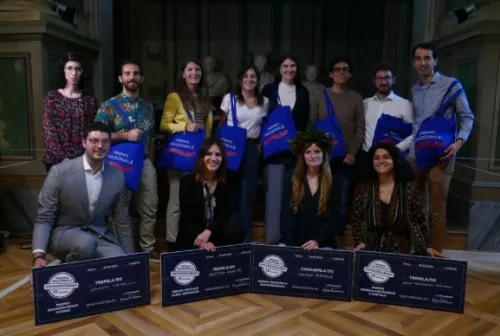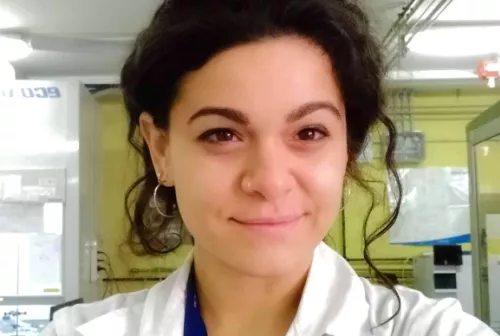Spoke 2 researcher Fraterrigo Garofalo wins the ‘’Giovedì Scienza: impresa sostenibile e digitale‘’ award

DataWaste is the innovative project realised by Dr. Silvia Fraterrigo Garofalo, researcher of the Research Module 5 of Spoke 2 - Green technologies and sustainable industry, on the occasion of Giovedì Scienza, an important science dissemination event in the Turin area.
This project was created to be a concrete and integral solution to tackle the problem of food waste through the process of Industrial Symbiosis, the research theme of Spoke 2, enhancing synergies between companies and promoting a circular economy.
From a global problem to a proposal for a local solution
Every year, one third of the food produced globally is wasted. This inefficiency is not only an environmental problem, but also an economic and social one. The lack of coordination and information between companies, especially small ones, hampers the recovery and valorisation of food waste. DataWaste proposes to solve this critical issue through an online platform that tracks by-products and waste in the agro-food sector.

The platform
DataWaste's open data platform focuses on the Piedmont region, providing details on the type of waste and current management methods. This tool aims to facilitate the connection between supply and demand, making it possible for local businesses to work together to reduce waste and maximise efficiency. Participants can thus share information and resources, promoting more sustainable and innovative food waste management.
One of the research lines of GRIP, Spoke 2's flagship project, is in fact industrial symbiosis: a process that aims to optimise the use of resources through collaboration between companies. Specifically, industrial symbiosis is based on the exchange of production residues (by-products, waste) between different realities. DataWaste is based on this principle, facilitating data sharing and collaboration between companies in the agri-food sector. It also uses a digital platform to improve resource efficiency and reduce environmental impact, becoming an example of how digitisation can support the transition to a greener and more responsible industry.
Sustainable Development Goals (SDGs) and Impact
Goal 9: Build a resilient infrastructure and promote innovation and fair, responsible and sustainable industrialisation
- 9.4: Improve infrastructure and sustainably reconfigure industries by 2030, increasing resource efficiency and adopting cleaner and more environmentally sound industrial technologies and processes, with all states taking action within their respective capabilities
Goal 12: Ensure sustainable patterns of production and consumption
- 12.3: By 2030, halve global per capita food waste at retail and consumer level and reduce food losses during production and supply chains, including post-harvest losses
- 12.5: By 2030, substantially reduce waste generation through prevention, reduction, recycling and reuse
- 12.6: Encourage companies, particularly large multinational corporations, to adopt sustainable practices and integrate sustainability information in their annual reports
What are the benefits of DataWaste?
For enterprises
- Cost optimisation: reducing food waste and improving operational efficiency;
- Collaboration and networking: facilitating networking and cooperation between local businesses.
For the environment
- Reduction of environmental impact: less waste of resources and reduction of greenhouse gas emissions;
- Circular economy: turning waste into resources and promoting a sustainable product life cycle.
Thanks to DataWaste, Dr. Fraterrigo Garofalo won the monetary prize up for grabs, together with an accompanying course for the development of the project. She will also have the opportunity to participate in a training course called ‘Art of Oratory’ to refine public speaking techniques in the field of science communication.
